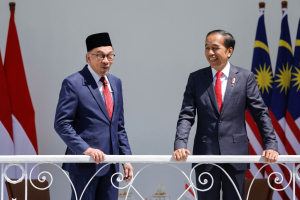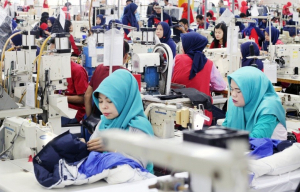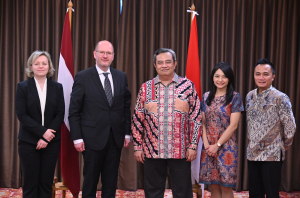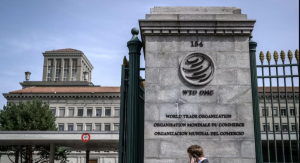Indonesian industry players raise concerns over the new EU deforestation-free law
The European Parliament recently adopted a new law to fight global deforestation, which is believed to be one of the main causes of climate change and biodiversity loss. The new law was adopted on April 19, 2023.
The deforestation-free law will be enforced for palm oil and its derivatives, cattle, cocoa, coffee, soya, wood, rubber, charcoal, and printed paper products, but will not apply to big medium-sized companies until 18 months later, and 24 months later for small and micro enterprises.
While no country or commodity will be banned, companies will only be allowed to sell products in the European Union if the supplier of the product has issued a so-called “due diligence” statement confirming that the product does not come from deforested land nor has it led to forest degradation, including irreplaceable primary forests, after December 31, 2020.
Companies will also have to verify their products to comply with the relevant legislation of the country of production, including regulation on human rights, and ensuring that the rights of affected indigenous people have been respected.
Moreover, the European Commission will use its unilaterally set benchmarking system to classify countries as low-, standard-, or high-risk based on an objective and transparent assessment within 18 months of this regulation entering into force.
The proportion of checks are performed on operators according to the country’s risk level: 9 percent for high-risk countries, 3 percent for standard risk, and 1 percent for low-risk.
Certainly, after more than two decades of aggressive negative campaigns against palm oil by green NGOs with support from EU vegetable oil producers, Indonesia, the world’s largest palm oil producer, will automatically be perceived as a high-risk country. Consequently, Indonesia will be subject to stringent due diligence with its time-consuming and costly bureaucratic process before entering the EU market.
To add to the complexity is that the law also unilaterally imposes an obligation of origin-tracing by using geolocation of where the products are farmed. The competent EU authorities will have access to relevant information provided by the companies, such as geolocation coordinates, and conduct checks with the help of satellite-monitoring tools and DNA analysis to check where products came from.
Sanctions for non-compliance with the regulation is a fine of 4 percent of the total turnover in the EU region, at minimum.
In response to the enactment of the regulation, the General Chair of the Indonesian Food and Beverage Producers Association (Gapmmi), Adhi S Lukman asserted that industry players in Indonesia are currently not ready to comply with the new regulation, especially regarding the traceability mechanism to prove that the raw materials used in exported products do not cause deforestation.
"We have two steps in response to this regulation. Firstly, we will raise objections because this regulation is difficult to implement for developing countries. We hope that these objections will be heard and taken into account by the WTO," Adhi said on Tuesday (25/4).
In addition, according to Adhi, industry players will analyze the regulation's impact and make efforts to adapt to it. As the regulation requires certification and verification to prove that their products are not causing deforestation, industry players need clarity from official institutions that can verify and issue certificates recognized by the EU.
On the other hand, the Deputy for Food and Agribusiness Coordination at the Coordinating Ministry for Economic Affairs, Mushalifah Machmud, stated that the government has been in dialogue with EU member countries regarding the objection to the EU deforestation-free law.
In May, Indonesia will once again engage in a dialogue with representatives from several EU countries in the Amsterdam Declarations Partnership. Through this dialogue, Indonesia will argue that regulation will unfairly affect developing countries and their export industries.
Indonesia will urge the EU to collaborate with developing countries on reforestation efforts and work together to reduce deforestation. The country will also stress the importance of equitable and sustainable economic growth that balances environmental protection with economic development.
Already have an account? Sign In
-
Start reading
Freemium
-
Monthly Subscription
30% OFF$26.03
$37.19/MonthCancel anytime
This offer is open to all new subscribers!
Subscribe now -
Yearly Subscription
33% OFF$228.13
$340.5/YearCancel anytime
This offer is open to all new subscribers!
Subscribe now






